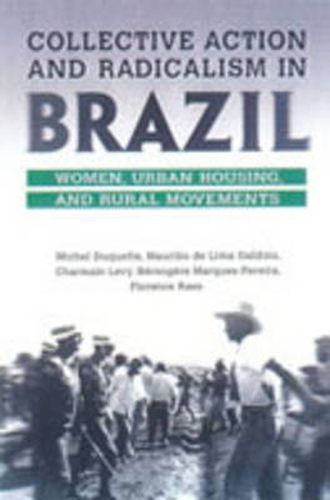Readings Newsletter
Become a Readings Member to make your shopping experience even easier.
Sign in or sign up for free!
You’re not far away from qualifying for FREE standard shipping within Australia
You’ve qualified for FREE standard shipping within Australia
The cart is loading…






In the past decade, Brazil has undergone a long series of political changes, culminating in the recent election of President Lula da Silva and his Workers’ Party. These changes have come about through a landslide of social activism that is unprecedented in the country’s history. The central topic of this book is an examination of three major recent movements within Brazil’s civil society: the women’s movement, the urban housing movement, and the landless peasant movement. All three are representative of a more general trend toward public protest and collectively indicate a shift in the internal dynamics of group identity within Brazil. The authors propose that the practices of power in Brazil are influenced by the expressions of a civil society now reorganized into a social movement and mobilized within a ‘cycle of protest’ that attains the level of a political alternative and that the present cycle of collective action is fuelled by the pitfalls of market reforms.
$9.00 standard shipping within Australia
FREE standard shipping within Australia for orders over $100.00
Express & International shipping calculated at checkout
In the past decade, Brazil has undergone a long series of political changes, culminating in the recent election of President Lula da Silva and his Workers’ Party. These changes have come about through a landslide of social activism that is unprecedented in the country’s history. The central topic of this book is an examination of three major recent movements within Brazil’s civil society: the women’s movement, the urban housing movement, and the landless peasant movement. All three are representative of a more general trend toward public protest and collectively indicate a shift in the internal dynamics of group identity within Brazil. The authors propose that the practices of power in Brazil are influenced by the expressions of a civil society now reorganized into a social movement and mobilized within a ‘cycle of protest’ that attains the level of a political alternative and that the present cycle of collective action is fuelled by the pitfalls of market reforms.